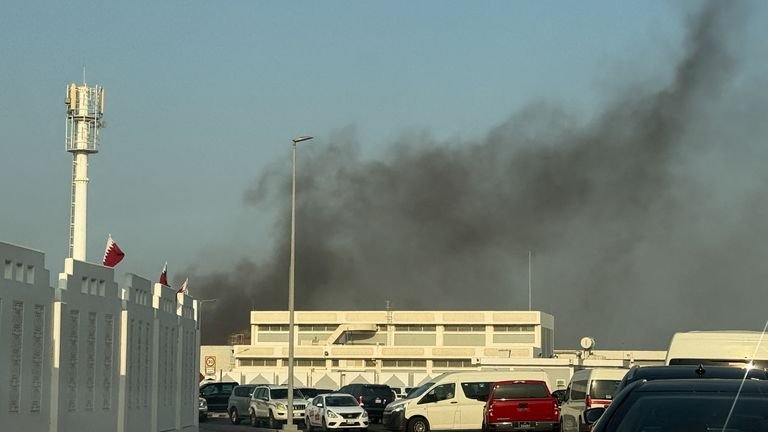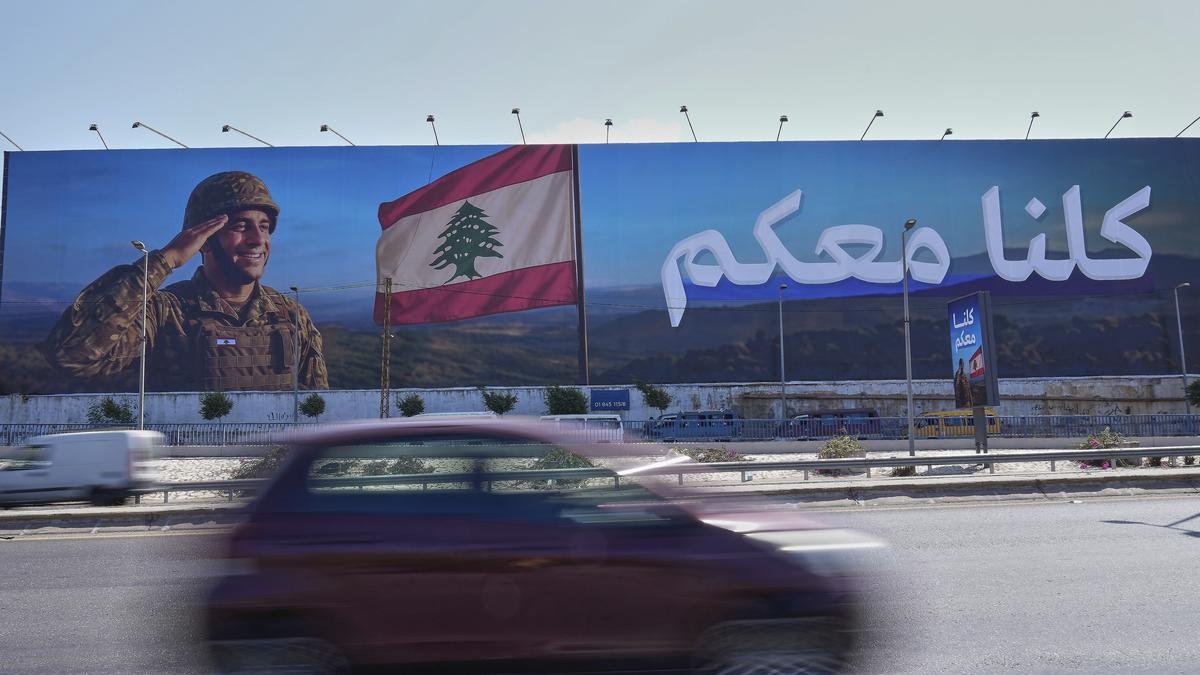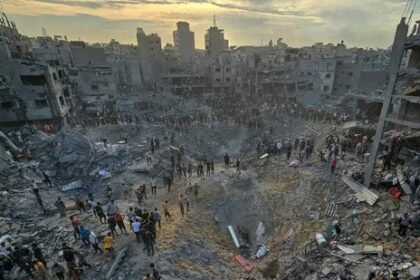Israeli Airstrike in Doha Marks a New Era in Conflict Strategy
The recent Israeli airstrike on Doha, Qatar, represents a significant shift in Israel’s approach to its adversaries, particularly Hamas. This bold move has raised eyebrows across the region, as it not only targets a group that has historically been a thorn in Israel’s side but does so in a nation with which Israel has maintained diplomatic relations.
A Shift from Stealth to Overt Action
Historically, Israel has favored covert operations to eliminate threats, often employing methods that allowed for plausible deniability. Assassinations were typically carried out discreetly, using poison or other subtle means. However, the events of October 7, 2023, have seemingly altered this strategy. Israeli officials assert that the attack on Hamas leader Ismail Haniyeh in Tehran in 2024 marked a turning point, leading to a more aggressive military posture.
In the latest airstrike, Israel targeted Hamas leaders in Doha, a city that has served as a political hub for the group since 2011. This decision has sparked outrage and concern among regional allies and adversaries alike, highlighting the complexities of Middle Eastern geopolitics.
Context of the Airstrike
The airstrike in Doha is not an isolated incident but part of a broader narrative of escalating tensions between Israel and Hamas. While the Israeli government has justified its actions by citing the need to neutralize threats, the choice of target raises questions about the effectiveness and implications of such military actions.
Critics argue that the individuals targeted in the airstrike, while associated with Hamas, were not directly responsible for orchestrating the October 7 attacks, which resulted in significant civilian casualties. This has led to a debate about the ethics and strategic wisdom of targeting leaders who may have been involved in negotiations for hostage exchanges.
The Role of Qatar in Hamas Politics
Qatar’s role as a host for Hamas’s political office has been a contentious issue. The U.S. government played a pivotal role in facilitating this arrangement, believing that a political presence in Doha would provide a platform for dialogue and potentially reduce hostilities. Israeli officials previously expressed that improving conditions in Gaza could diminish Hamas’s incentive to engage in conflict.
However, the recent airstrike has raised questions about the efficacy of this approach. Critics of Prime Minister Benjamin Netanyahu suggest that his government has been playing a dangerous game of “divide and rule,” inadvertently strengthening certain factions within Palestinian politics while undermining others.
Historical Precedents and Implications
This airstrike is reminiscent of past Israeli operations, such as the failed assassination attempt on Khaled Meshaal in 1997. Netanyahu, then a rising political figure, ordered a botched operation that resulted in international backlash and ultimately forced Israel to provide an antidote to save Meshaal’s life. The current airstrike, while more overt, echoes the same high-stakes gamble that has characterized Israeli operations for decades.
Initial reports indicate that Meshaal, a prominent figure in Hamas, survived the latest attempt on his life. This raises further questions about the effectiveness of such strikes, especially when the individuals targeted are often involved in negotiations that could lead to the release of hostages held by Hamas.
The Dilemma of Hostage Negotiations
One of the most pressing concerns following the airstrike is its potential impact on hostages held by Hamas. The individuals targeted in the attack were reportedly part of discussions aimed at securing the release of these hostages. By eliminating key figures in the negotiation process, Israel may have inadvertently complicated its own efforts to secure the safe return of its citizens.
As the situation unfolds, the broader implications of this airstrike will likely reverberate throughout the region. The diplomatic fallout could strain Israel’s relations with Qatar and other nations that have historically acted as intermediaries in the Israeli-Palestinian conflict.
Conclusion
The Israeli airstrike on Doha marks a pivotal moment in the ongoing conflict with Hamas, signaling a shift towards more aggressive military tactics. While the Israeli government justifies its actions as necessary for national security, the broader implications for regional diplomacy and hostage negotiations remain uncertain. As the situation develops, the international community will be closely watching how these events unfold and what they mean for the future of peace in the region.











